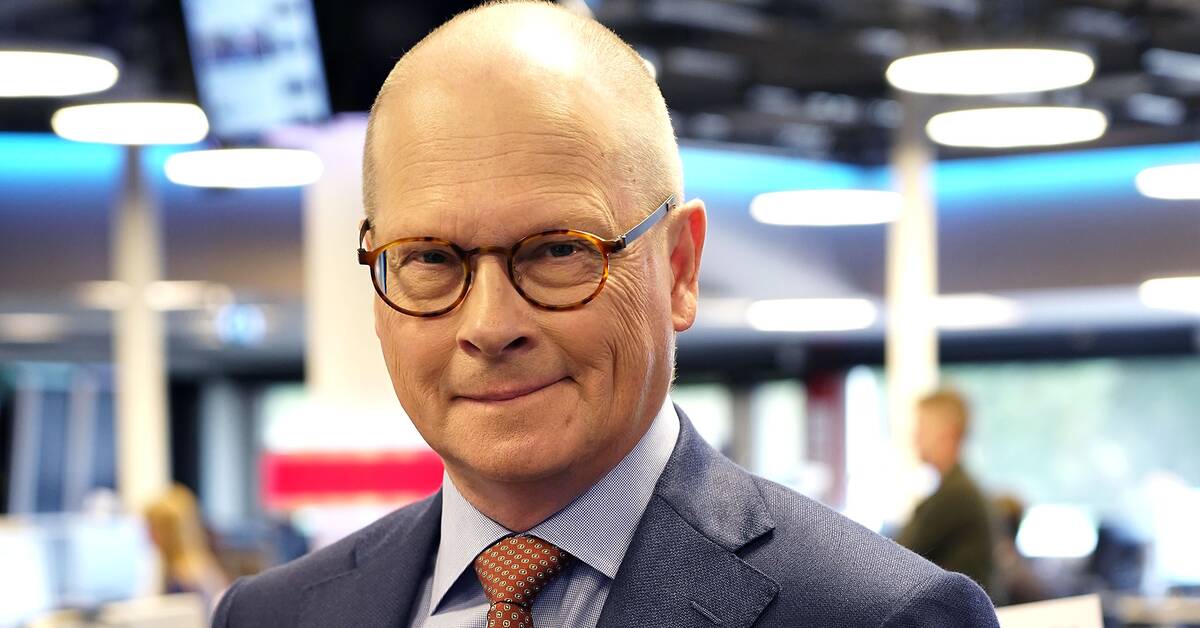Rarely - or perhaps never - has a foreign policy debate in the Riksdag been conducted in such a dramatic external situation.
Several months of Russian military recharging along the Ukrainian border, a hardening rhetoric from the Russian leadership and most recently information from the US intelligence service about an imminent Russian attack have created a charged security policy situation in Sweden's immediate vicinity.
The information war is already in full swing and it is difficult to assess the truthfulness of several of the information that is now circulating.
However, Russia's political demands are unequivocal and would, among other things, mean a Russian veto against individual countries being able to become members of the NATO defense alliance.
Crane on NATO option
Of course, much of the foreign declaration and the foreign policy debate revolved around the security policy crisis in the wake of Russian demands.
Criticism of what is described as Russian aggression was fierce.
Foreign Minister Ann Linde (SocDem) described Russia's confrontational rhetoric and military activities as "unacceptable", while Member of Parliament Hans Wallmark (M) warned that Russia will for a long time be a threat to peace in Europe.
Ann Linde also stated that "an armed attack on Sweden can not be ruled out", but is not prepared to change Sweden's basic security policy line: The military freedom of alliance remains, which according to the government contributes to stability and security in northern Europe.
Here, the four bourgeois parties (M, KD, C and L) make a completely different assessment.
On the contrary, they believe that a Swedish NATO membership would provide increased security and stability.
Together with the Sweden Democrats, they have also voted through a demand for a so-called NATO option, ie that Sweden must clearly state that NATO membership is an alternative in the event of a deteriorating security policy situation.
But the government and Ann Linde say no, and believe that this would create increased uncertainty about Sweden's security policy line.
Want to send defense equipment
Several parties also want Sweden to send defense equipment to Ukraine.
In the foreign policy debate, Hans Wallmark demanded information from the Foreign Minister, who, however, did not seem particularly interested.
Instead, she said, among other things, that Sweden already provides extensive financial support to Ukraine and that it is unclear what the Armed Forces can do without.
Another issue where opinions diverge is what conclusions should be drawn from what is now happening with regard to further investments in the Armed Forces.
Several opposition parties are demanding quick decisions and billions more for the defense.
However, the Government's position is to bring forward already decided measures.
The issue will now continue to be discussed between the Defense Committee and the Minister of Defense.
Several debaters also questioned the Sweden Democrats' actions in the European Parliament the other day when a decision was made on a large financial support package for Ukraine.
The three SD members of the European Parliament chose not to support the package, which led to harsh criticism from several other parties in the Riksdag's foreign debate.
SD's representative in the debate, Member of Parliament Aron Emilsson, did not have a very easy time explaining why the party voted as it did, but said that there should be no doubt about SD's view of Russia's aggression.
In summary, the foreign policy debate showed an overall view of the threat in Sweden's immediate area and Russia's responsibility for this.
But when it comes to how the policy should be designed to meet and deal with this threat, the differences of opinion are significant, both in terms of concrete measures and how the future security policy line should be designed.

